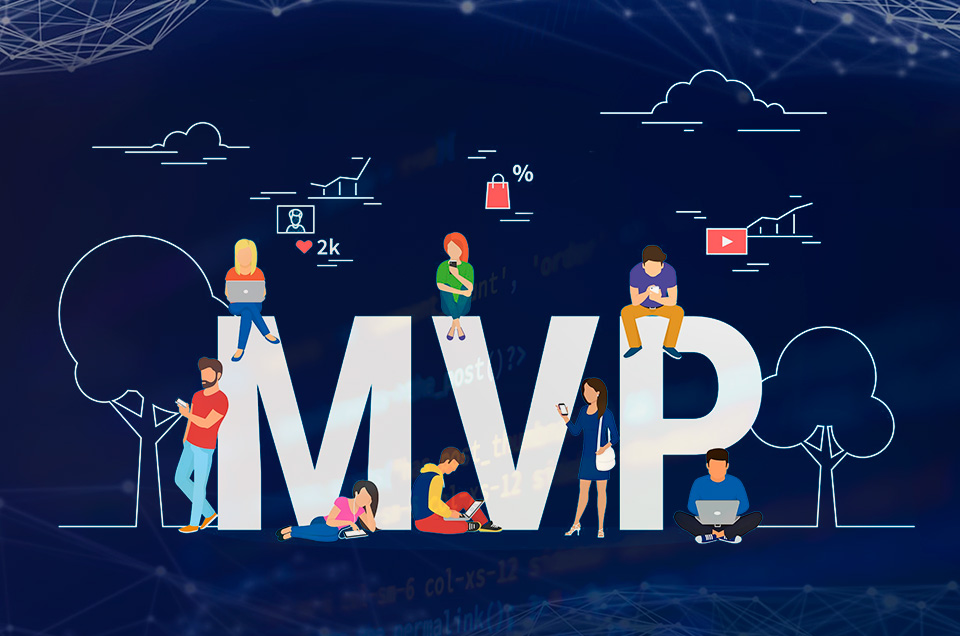MVP stands for Minimum Viable Product. It is a development strategy that involves creating a basic version of a product or service with only essential features to test the market and gather user feedback. The primary goal of an MVP is to validate the business idea and minimize development costs and risks.
The importance of MVP lies in its ability to help entrepreneurs and businesses test their assumptions, gather feedback, and make data-driven decisions. It allows them to test the market demand for their product/service, identify potential customers, and validate their business model. By launching an MVP, businesses can get a sense of what their target audience wants and needs before investing a significant amount of resources into developing a full-featured product.
Some of the benefits of MVP app development include:
• Reduced development costs and risks: By developing an MVP first, businesses can minimize the costs and risks associated with developing a full-featured app without knowing if there is market demand for it.
• Early feedback and validation: MVP app development allows businesses to get early feedback from users and validate their assumptions before investing significant resources into developing a full-featured app.
• Ability to pivot and adapt: If the MVP app does not perform well in the market or user feedback suggests changes are needed, businesses can pivot and make necessary adjustments without investing too much time and money into a full-featured app.
• Faster time to market: MVP app development allows businesses to launch their app faster and get it into the hands of users sooner, giving them a competitive edge in the market.
• Testing a new business idea: If you have a new business idea and want to validate it in the market, an MVP can help you test the waters and gather feedback from early adopters.
Many successful companies have started with MVP development, including:
1. Dropbox – Dropbox’s MVP was a simple video that demonstrated how their product would work. The video went viral, generating massive interest and sign-ups before the product was even built.
2. Airbnb – Airbnb’s MVP was a simple website that listed the available rooms for rent during a design conference in San Francisco. The founders realized the demand for their service and expanded to other cities.
3. Uber – Uber’s MVP was a simple app that allowed users to request a black car service. The founders validated the demand for their service and expanded to include other modes of transportation.
4. Instagram – Instagram’s MVP was a simple photo-sharing app that allowed users to apply filters to their photos. The founders validated the demand for their service and expanded to include more features.
5. Groupon – Groupon’s MVP was a simple WordPress blog that listed daily deals in Chicago. The founder validated the demand for the service and expanded the product offerings to include other cities and categories.
6. Slack – Slack’s MVP was an internal messaging tool used by the founder’s team to communicate during the development of another product. The founder realized the demand for the tool and launched it as a separate product.
7. Foursquare -The initial version of Foursquare was a simple mobile app that allowed users to “check-in” to locations and share their location with friends. The founders validated the demand for their product, gathered feedback from early adopters, and used that feedback to iterate and improve the app over time. Today, Foursquare has evolved into a location-based platform that provides recommendations for places to eat, drink, and explore, and helps businesses connect with customers in their area.
MVP development is a powerful tool that can help startups and businesses test their ideas, validate assumptions, and launch their product/service quickly and cost-effectively. Many successful companies have started with MVP development, and with the right approach and execution, it can be a great way to build a successful product or service.
There are many MVP app development companies that specialize in developing MVPs for businesses. These companies have experience in identifying the core features that are essential to an app’s functionality and user experience and can help businesses develop an MVP that meets those needs. Whether you’re looking for MVP Android app development or MVP iOS app development, there are many companies out there that can help you with your project.
At Vhigna, we have helped many startups and businesses develop MVP applications that meet their unique needs and goals. Our experienced team of developers, designers, and product experts can guide you through the MVP development process and help you create a product that resonates with your target audience. If you are interested in MVP development and want to learn more about how Vhigna can help you launch your product/service, please get in touch with us today. We are ready to help you turn your business idea into a successful reality.




